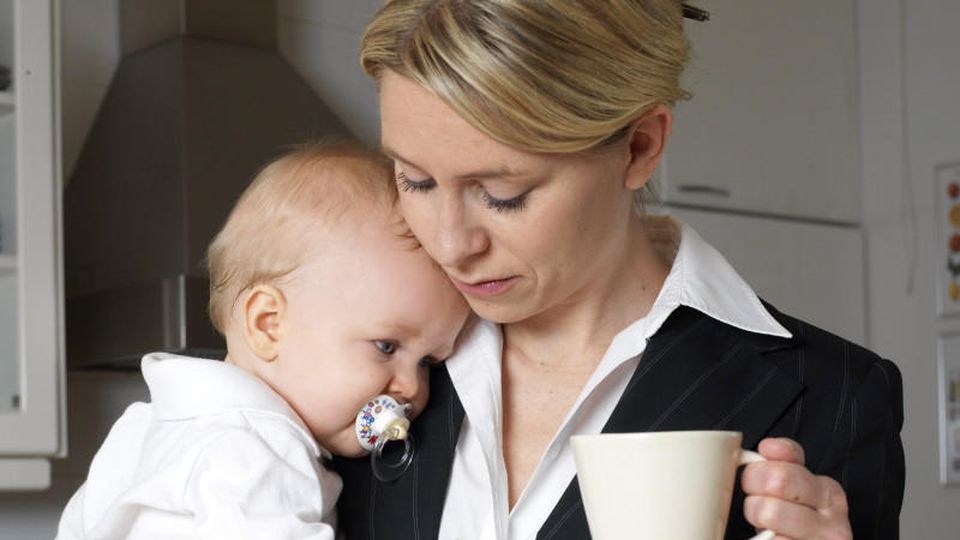Despite equal rights, women take on the majority of education and housework. In addition, there is often a part-time job, while men continue to be the main earner in the family. Why is that?
Ulrich B. works as a full-time clinician in a small Bavarian town. His wife Katharina is a nurse with a reduced number of hours. She also runs nursing courses. When she is not in the clinic, she devotes her time to the two sons. One of them goes to kindergarten, the other to primary school. She cleans and washes, works in the garden. Ulrich, on the other hand, washes the car and takes care of repairs. Cooking is shared between the couple, depending on who has the time at the moment. Katharina rides in her free time. Ulrich then hikes with the children. He cycles when his wife takes care of the sons. Much time for the whole Family hardly stays – only on free weekends or after work.
This family is quite classic in terms of roles and division of labor. The father works. The mother takes care of children and home. The situation is similar in 8.1 million German core families, i.e. parents with at least one child. According to the Federal Statistical Office, a good 36 percent of all households correspond to Ulrich’s family with father, mother and two children under the age of 18. Many studies would come to the same result, the researcher Rosemarie Nave-Herz writes in her book "Family Today". In reality, almost only women are responsible for the household.

As long as the children are not yet at school, everyday life is easy to organize. Once children become students, it can become stressful. Family and school suddenly have to be coordinated. From then on, many parents fear to fail. "The fear of not being a good mother without knowing what a good mother actually is means that many parents or mothers often no longer consider problems that are always part of family upbringing with the appropriate calm, patience, even distance" writes Nave-Herz.
And Claudia Solzbacher, professor at the University of Osnabrück, has found that children “have their social and performance-related experiences from the Carrying school into everyday family life ”. School problems can therefore lead to conflicts within the family. She is surprised that many people visit family counseling centers for this very reason.

Often come Parents because they have to do homework. Two out of three parents feel compelled to take care of their homework. Mostly the mother helps. It is normal for Ulrich that Katharina helps more because she works less hours and he is often not at home before 7 p.m..

When Ulrich’s seven-year-old son comes home at noon, he usually does his homework by himself. He goes to the after-school care center twice a week when his mother is on duty. There he does his homework and also has someone who looks over it. “Katharina often checks her homework at home,” says Ulrich. “I rarely do.” The family spends about an hour and a half doing homework every day.
It is very difficult to find time for each other. "It is important to us that we talk to each other every evening," says Ulrich. As soon as the children are in bed at 7:15 p.m., the couple has time to themselves.
Because childcare is expensive, many women reduce working hours until the children go to secondary school. Work and family life is not always easy. The husband is still the main earner in almost two thirds of German households. Both partners earn almost the same amount in just under a third of households.
Another challenge is that many women want to pursue careers. Katharina, too, always has to undergo further training because her employer expects this. She discusses professional appointments with Ulrich, especially when the new roster comes out. All working hours and school days, as well as birthdays and hiking days are precisely noted on the refrigerator.
In general, young mothers often have to straddle the balance between family and work, which neither work nor family take into account, according to family researcher Rosemarie Nave-Herz. It provides sobering facts. Women could not work fully professionally, since, given the continuing gender-specific division of labor, they are still largely responsible for the domestic area. Although it has been known for a long time, little has changed, apart from political appeals, scientific advice, pilot projects, family policy laws and measures.
RELATED ITEMS
-

Job and family: career break or not?
Not so long ago, work and family life, especially for women, were only compatible in individual cases. While the man as the main breadwinner…
-

Not enough time for the family: why are children always neglected?
Not enough time for the family: why are children always neglected? July 24, 2018 – 4:04 pm Not enough time for the family – why is that? An actual…
-

Dealing with disabled children in the family
Pia Kotzur has been working as an editor at NetMoms since 2010 and has since been able to gain a lot of experience on what moves mothers in everyday life. After your…
-

Entry to kindergarten – a significant event for the family
Wilfried Griebel Renate Niesel Entry to kindergarten is a unique event not only for children, but also for parents…
